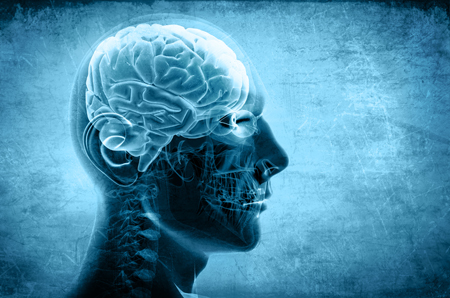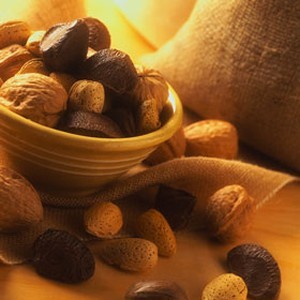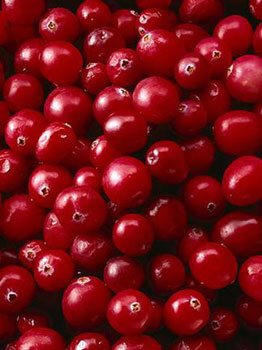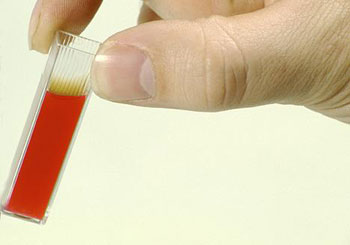|
It was first published in 2015
Page Update 01/02/2021
How To Preserve Your Beautiful Brain
By. Dr. Ashraf Girgis N.D.
|
 |
|
|
Many people associate youth with plump, wrinkle free skin. However, being young goes much deeper than just your skin. Being young affects everything from simple posture, to pain free joints, to the level of agility and flexibility a person has. Being young is characterized by bright eyes, contagious laughter, and a carefree attitude. But most importantly, it is our level of alertness and the sharpness of our memory. So, how can we maintain a healthy young brain that is not only alert and resourceful, but stays this way for our entire life?
We are born with twenty-three billion brain cells, which are also known as neurons. Each neuron has connections (synapses) to many other neurons. It is estimated that there are somewhere between 1,000 to 10,000 synapses per neuron.
In order for us to learn anything, we need these cells to connect to each other. Scientists in recent decades have discovered that the brain is capable of amazing neuroplasticity. In other words, the brain--contrary to previously held beliefs—can continue to change, grow, and expand even as we grow; older brain cells can be regenerated into new ones. These changes can be improvements or deteriorations.
Until 90s, we did not know as much about the brain as we did with other organs, such as the heart, kidneys, lungs, etc. The arrival of CT (Computerized Tomography) MRI and PET (Positron Emission Tomography) scans changed this. These are capable of showing clear images of the brain’s metabolic activities, and are helping unlock the brain’s mysteries to scientists. They allow scientists to see the way we process information, and how memories are stored. Thanks to this recent technology, we have discovered that the brain is not a fixed machine, but an ever-changing collection of neurons that keeps our memory, our thought processes, and our knowledge.
Therefore, keeping this organ in good shape is so vital to our aging process. Not only does this help us stay young, but allows us to live a life that is productive. We are product of our way of thinking, and these thinking processes can be made possible by the health of our brain. In order for our brain to process and maintain our memory, we need to make many healthy lifestyle changes. One of these is to have a diet that provides what our brain needs.
The diet our brain needs is a demanding one. It is a diet that is full of nutritious ingredients. A diet that is full of vegetables and fresh fruits, and good sources of protein such as fish, legumes, and nuts. Basically, our Paleolithic diet--the kind that our ancestors ate. Among all kinds of foods, there are few that stand out based on research and their chemical compositions. They are especially important to our brain cells.
Some examples are:
|

|
|
Fathy Fish
According to a study conducted by the Harvard School of Public Health, professors Dariush Mozaffarian and Eric Rimm were eating about 2 grams per week of omega-3 fatty acids in fish; about one or two servings of fatty fish a week. Not only is this important for brain and nervous system developments of babies, but it also reduces the chances of heart disease by more than one-third. Other possible benefits of eating fish once or twice a week is that it can reduce the risk of Alzheimer’s, stroke, and other chronic age-related diseases. If you are worried about mercury in fish, or if you like to avoid meat all together, there are other sources of antioxidants such as Flaxseeds that can be grinded and added to many types of food.
|
 |
|

|
Walnuts
Walnuts originated in ancient Persia (Iran) and were spread to Europe and China. Iran is currently the number two producer of walnuts after China. The rich anti-oxidant content of walnuts is the reason for their beneficial impact on the brain. In Iran, I noticed that many times, even very old people continued to maintain excellent memories. Iranians also pride themselves for being very smart. I personally attribute their smart brains and good memories partially to their eating habits. They snack on all types of nuts and seeds instead of sweets. In addition, they eat many fruits that are rich in anti-oxidants, like apples, pomegranates, and mulberries.
Walnuts have the highest amount of antioxidants among all the nut family. Not only do they improve memory, but they also help with overall cognitive function.Walnuts contain many other trace minerals as well, such as Calcium, Manganese, Zinc, Iron, Magnesium, and Phosphorous. However, 100 grams of walnuts contains 654 calories, so be careful when you snack.
|
|
Celery
Celery is from the parsley family. According to a study conducted in China by Yin Peng PhD, a doctorate student in Harvard Medical School and China’s research Institute, celery seeds are very promising. It has been shown that an extract from celery seeds (L-3-Butylphthalide L-NBP) inhibits oxidation and brain injuries, while increasing cognition. They are also potentially be able to prevent and reverse Alzheimer disease, which is absolutely great news--elderly Alzheimer’s affects millions. According to the Census Bureau, the number of Americans affected with Alzheimer’s disease will double between 2010 and 2050 for those 65 and older. This would make it 20% of that population. Those 85 and older will be three times more succeptable to the disease. Clearly, Alzheimer’s is a very costly disease, both emotionally and financially, to the family and loved ones.
Celery has many other benefits, however. It lowers blood pressure, decreases the amounts of bad cholesterol, and assists in weight loss. Celery leaves are a rich source of flavonoids and antioxidants such as zea-xanthin and beta-Carotene. Because of these anti-oxidants properities, celery does much more than help our brain. It can also help fight cancer and strengthen our immune system.
|
 |
 |
Pomegranate
The Pomegranate is native to ancient Persia (Iran). In Iran, there is a festival every year in Mardangon). A whole town celebrates the pomegranate, this wonderful fruit that is associated with love. They were used for coloring and its skin was used for arrows by the soldiers in ancient Iran. In addition, physicians in ancient Iran prescribed it for gastrointestinal issues including diarrhea and gastrointestinal parasites. Iran is currently the biggest producer of the pomegranate. Pomegranates have been mentioned in the Quran as the fruit of paradise, as well as in the Bible. Pomegranates have more antioxidants than berries, and have many benefits. The juice is good for the stomach and intestinal parasites. Pomegranates contain Vitamin K, Vitamin C, and Tenine. 12% of the daily vitamin C requirement can be found in one pomegranate. They contain flavonoids and polyphenols, and are also excellent sources of fiber due to their seeds. The seeds themselves contain Stearic acid, lioleic acid, palimic acid, and punicic acid. The seeds also contain more estrogen than any other source, in addition to possibly containing testosterone as well. The seeds also contain bioactive phytoestrogens that can be very helpful to women going through menopause by maintaining the health of their reproductive system. However, what makes this a brain fruit is its high anti-oxidant content.
|
|
Eggs
Eggs are not only beneficial for the brain, but are also excellent in preventing other signs of old age: macular degenerations and cataracts. Many people shy away from eggs due to their high cholesterol level. However, according to a study conducted at the Harvard School of Medicine, one egg a day is beneficial to health and would not cause an increase in cholesterol level. Eggs have about 272mg of choline.
Choline is a precursor of Acetylcholine, and Acetylcholine is a very important neurotransmitter. It has a very important role to play when it comes to memory and focus. In order to get the Acetylcholine needed for good brain function, we need to provide the body with foods that are rich in choline so that it can be built into acetylcholine. Eggs are one of these foods; other foods containing choline are organ meats such as beef liver. Choline can also be found in milk. Choline is very important for muscle coordination, which seems to be lacking in our old age.
For more, sign up for Dr. Girgis’s talk, How to Live Healthy to 100 and Beyond. Visit the "Events" section of our website . Thanks for visiting curenaturally.org.
Thanks
Ashraf Girgis N.D.
|
 |
|
|
|
References
1."10 Health Benefits of Eggs." 10 Health Benefits of Eggs. N.p., n.d. Web. 11 July 2014."
2.Alzheimer's Foundation of America." Alzheimer's Foundation of America. N.p., n.d. Web. 11 July 2014.
3.Duke, James A. The Green Pharmacy Guide to Healing Foods: Proven Natural Remedies to Treat and Prevent More than 80 Common Health Concerns.
4.New York: Rodale, 2008. Print."Eggs and Heart Disease."
5.The Nutrition Source. N.p., n.d. Web. 11 July 2014.
6."Fish: Friend or Foe?" The Nutrition Source. N.p., n.d. Web. 09 July 2014."
7.Food Sources of Acetylcholine." LIVESTRONG.COM.
8.LIVESTRONG.COM, 11 Jan. 2014. Web. 11 July 2014.
9."HowStuffWorks "Health Benefits of Eggs""
10.HowStuffWorks. N.p., n.d. Web. 11 July 2014."
11.Top 20 Best Foods for Your Brain: Ideal Brain Food.
12." EcoSalon. N.p., n.d. Web. 11 July 2014.Hu FB, Stampfer MJ, Rimm EB, et al.
13.A prospective study of egg consumption and risk of cardiovascular disease in men and women. JAMA. 1999; 281:1387-94.Fernandez ML.
14.Dietary cholesterol provided by eggs and plasma lipoproteins in healthy populations.
15.Curr Opin Clin Nutr Metab Care. 2006; 9:8-12. Djousse L, Gaziano JM. Egg consumption and risk of heart failure in the Physicians’ Health Study.
16.Circulation. 2008; 117:512-6. "10 Health Benefits of Eggs." 10 Health Benefits of Eggs. N.p., n.d. Web. 11 July 2014.
|
|
|
Additional Articles

How to Prevent Heart Disease
Read More
|

Cholesterol and What to Do About It
Read More |

Magnesium: the molecule that makes things happen
Read More |
|
|
|

Coughs – And How to Treat Them
Read More |

How To Preserve Your Beautiful Brain
Read More
|

Few Important Steps In Prevention Of Heart Disease.
Read More |
|
|
|
|